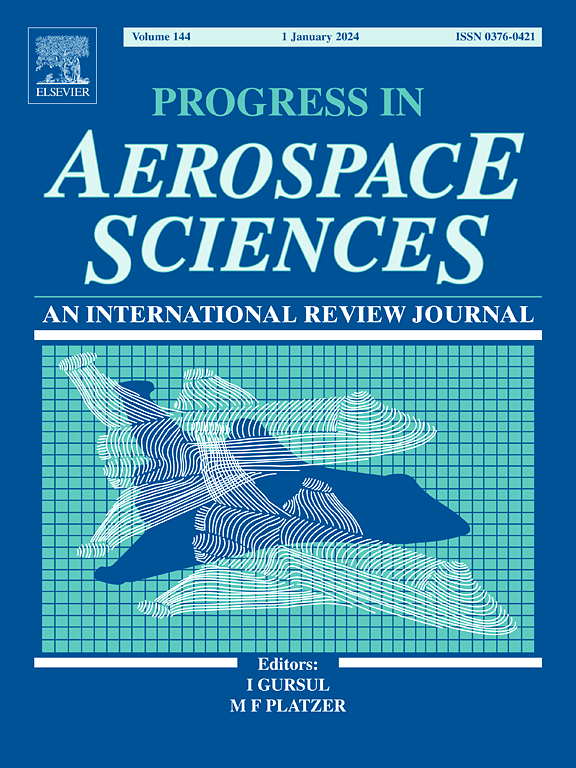Progress and prospects of artificial intelligence development and applications in supersonic flow and combustion
IF 11.5
1区 工程技术
Q1 ENGINEERING, AEROSPACE
引用次数: 0
Abstract
Due to the significant improvement in computing power and the rapid advancement of data processing technologies, artificial intelligence (AI) has introduced new tools and methodologies to address the challenges posed by high nonlinearity and strong coupling characteristics in traditional supersonic flow and combustion. This article reviews the considerable progress AI has made in applications within the fields of supersonic flow and combustion, covering three main aspects: intelligent turbulence combustion simulation, supersonic flow field intelligent reconstruction based on deep learning, and the intelligent design of the full-flow passage of supersonic engines. In recent years, the field of turbulent combustion has seen the utilization of large volume of data combined with implementation of advanced machine learning models, enabling accurate predictions of combustion efficiency and optimization of the combustion process. Flow field intelligent reconstruction employs deep learning networks to accurately reconstruct the detailed information of the entire flow field from limited observational data, enhancing the capacity to analyze and predict supersonic flows. The intelligent design of the full-flow passage of supersonic engines has led to efficient design and optimization of complex flow systems through the integration of advanced optimization algorithms and AI technology. These advancements have driven the development of supersonic flow and combustion theories and provided innovative solutions for related engineering applications. Finally, the challenges and future applications of machine learning in combustion research are discussed.
人工智能在超声速流动与燃烧中的发展与应用进展与展望
由于计算能力的显著提高和数据处理技术的快速发展,人工智能(AI)引入了新的工具和方法来解决传统超声速流动和燃烧的高非线性和强耦合特性所带来的挑战。本文综述了人工智能在超声速流动与燃烧领域的应用取得的长足进展,主要包括三个方面:智能湍流燃烧模拟、基于深度学习的超声速流场智能重构以及超声速发动机全流道的智能设计。近年来,湍流燃烧领域已经看到大量数据的利用与先进机器学习模型的实施相结合,能够准确预测燃烧效率和优化燃烧过程。流场智能重建采用深度学习网络,从有限的观测数据中精确地重建整个流场的详细信息,增强了超声速流动的分析和预测能力。超声速发动机全流道的智能化设计,将先进的优化算法与人工智能技术相结合,实现了复杂流动系统的高效设计与优化。这些进步推动了超声速流动和燃烧理论的发展,并为相关工程应用提供了创新的解决方案。最后,讨论了机器学习在燃烧研究中的挑战和未来应用。
本文章由计算机程序翻译,如有差异,请以英文原文为准。
求助全文
约1分钟内获得全文
求助全文
来源期刊

Progress in Aerospace Sciences
工程技术-工程:宇航
CiteScore
20.20
自引率
3.10%
发文量
41
审稿时长
5 months
期刊介绍:
"Progress in Aerospace Sciences" is a prestigious international review journal focusing on research in aerospace sciences and its applications in research organizations, industry, and universities. The journal aims to appeal to a wide range of readers and provide valuable information.
The primary content of the journal consists of specially commissioned review articles. These articles serve to collate the latest advancements in the expansive field of aerospace sciences. Unlike other journals, there are no restrictions on the length of papers. Authors are encouraged to furnish specialist readers with a clear and concise summary of recent work, while also providing enough detail for general aerospace readers to stay updated on developments in fields beyond their own expertise.
 求助内容:
求助内容: 应助结果提醒方式:
应助结果提醒方式:


